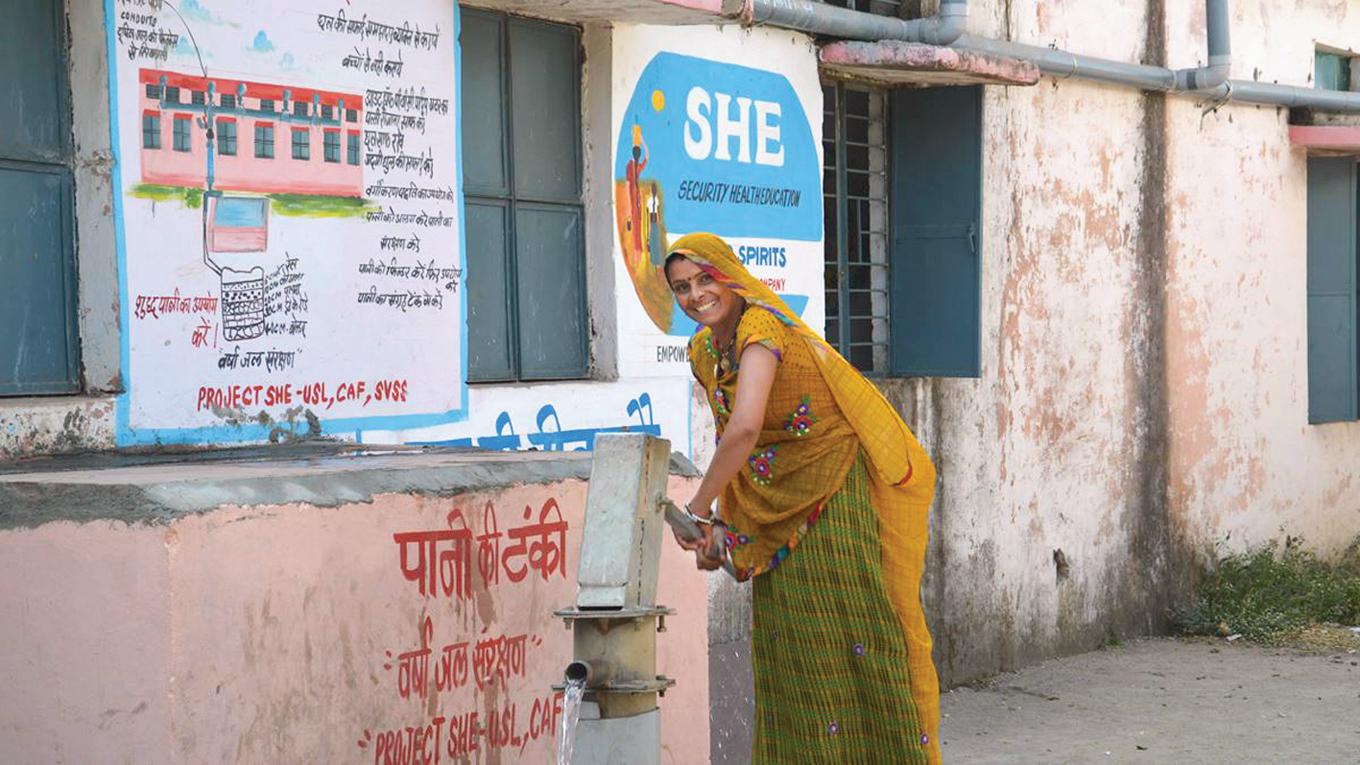-

Buoyed by the success of Stree, Diageo is planning to replicate it in other places
Bholi, a 12-year-old girl from Dindori district in Madhya Pradesh, like her mother and sisters, used hay to absorb blood during her periods. During one such attempt, an insect in the hay entered her body and caused a severe infection in her uterus. The doctors had no option but to remove it. Bholi will never bear a child. This oft-quoted horrific case is an extreme symbol of the problems suffered by millions of women and young girls in India due to bad Menstrual Health Management (MHM). Various studies paint a shocking picture of MHM in the country. The social stigmas surrounding menstruation reflect the worst and most regressive aspects of India’s patriarchal society. More than 70 per cent of all girls are unaware of the concept of menstruation until menarche. A similar count of mothers consider menstruation ‘dirty’. Nearly 90 per cent of menstruating women use alternatives such as old fabric, rags, sand, ash, wood shavings, newspapers and hay. Lack of functioning toilets results in 23 per cent girls dropping out of school every year; because in the absence of a household toilet, 66 per cent of women manage their menstruation in the open. In recent years, several policy measures by central and state governments, initiatives by the social sector and the success of Bollywood films ‘Pad Man’ and ‘Toilet, ek prem katha’ starring Akshay Kumar, have focussed attention on women’s hygiene issues. Diageo’s efforts in this space have evolved from a project called S.H.E – Safety, Health and Empowerment – of women that is being implemented near all manufacturing locations into an initiative called ‘Stree’. At a bottling plant in Alwar district of Rajasthan, the initiative is implemented in partnership with a local NGO – Gramodaya Samajik Sansthan (GSS). Diageo, working with GSS, encouraged the formation of Self-Help Groups (SHG) of women and provided them training on manufacturing and commercialisation of sanitary napkins. These sanitary napkins were marketed using health service providers and anganwadi workers, thereby overcoming the social taboo that is often associated with talking about menstruation.
-
Lack of functioning toilets results in 23 per cent girls dropping out of school every year
The project has 15 women as SHG members. The SHGs have a capacity to make 400-500 sanitary napkins a day, which they sell at Rs22 per packet of six pads. It has increased the SHG members’ average monthly income by Rs3,000.
Several additional steps needed to be taken to ensure that the project had the desired positive effects on the community. Fundamental was the need to educate the target group in the proper use of sanitary napkins and how often they need to change them. Here, the fact that the napkins were being sold by local health service providers helped.
The third issue that the project needed to tackle was of toilets – both at homes as well as separate toilets for girls in schools. Working closely with the gram panchayats and state government officials, Diageo was able to ensure, under the aegis of the Swachh Bharat Abhiyaan, that both these objectives were achieved.
The final problem they had to tackle was about the proper disposal of used sanitary pads. Diageo and GSS carried out an awareness campaign on this issue and the gram panchayat is being educated on how to deal with the issue.
The results of the Stree Project have been impressive. Over 80 per cent of menstruating women in the area now have access to sanitary pads. Adolescent girls used to routinely skip schools for up to five days a month, during their periods. Their attendance has now increased by 90 per cent.
As their incomes have increased and health has improved, so has their attendance and participation in gram sabhas. Buoyed by the results of the project, Diageo believes it has found a model that is replicable across several locations and it is planning to implement a similar project, on a much larger scale in Baramati, around another of its bottling plants.
Biogas
BioEnergy will showcase its innovative biogas technology in India
Mobility
Ather aims to produce 20,000 units every month, soon
Green Hydrogen
German Development Agency, GIZ is working on a roadmap for a green hydrogen cluster in Kochi
Renewable Energy
AGEL set to play a big role in India’s carbon neutrality target



















